Cargando...
Recursos educativos
-
Nivel educativo
-
Competencias
-
Tipología
-
Idioma
-
Tipo de medio
-
Tipo de actividad
-
Destinatarios
-
Tipo de audiencia
-
Creador
-
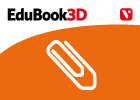
Breeding seasons
EduBook Organización
- 2826 visitas
Most mammals only reproduce at a certain time of the year. This is when the female reaches maximum sexual receptivity and is most attractive to the male. This season is called oestrus or heat and it…
-
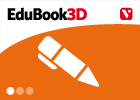
Check. Test yourself
EduBook Organización
- 5 lo usan
- 15875 visitas
Remember what you have studied in this section and answer the questions: Describe the life cycle of a butterfly. Explain viviparity. Are only mammals viviparous? What type of fertilisation takes place…
-
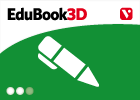
Answer. Birds
EduBook Organización
- 3291 visitas
Remember what you have studied in this section and answer the questions: What does oviparous mean? What do birds have in common with mammals? What do birds have on their body that helps them to maintain…
-
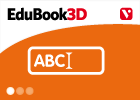
Initial evaluation 2 - The Animal Kingdom (II). Vertebrates
EduBook Organización
- 2720 visitas
Complete the following sentences with the missing words: Fish's bodies are covered in and mammals are covered in . The transformation of a tadpole into a frog is called . The warm-blooded…
-
True/false. Oviparous animals and viviparous animals
EduBook Organización
- 2647 visitas
Decide if the following statements are true or false: The time the embryo stays inside the mother is called gestation. ➝ The embryos of oviparous animals develop inside the mother. ➝ Mammals are…
-
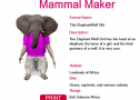
Mammal maker
Tiching explorer Organización
- 1 lo usan
- 2404 visitas
Interactive resource designed to help us mix and match parts from ten different mammals, forming our own species. We write important facts about our new mammal, before printing out the picture.
-
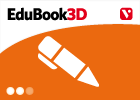
Describe. The characteristics of vertebrates
EduBook Organización
- 1783 visitas
With a word or short phrase describe the following characteristics in fish, amphibians, birds and mammals: Type of skin. Shape of body. Appendages. Respiratory aparatus. Body temperature regulation.…
-
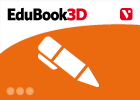
Final evaluation 10 - The Animal Kingdom (II). Vertebrates
EduBook Organización
- 1491 visitas
From the following distinctive characteristics, choose those that differentiate mammals from other vertebrates: homeothermic body covered in hair spinal column four limbs glands in the female for…
-
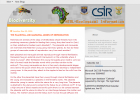
Biodiversity: THE PLACENTAL AND MARSUPIAL MODES OF REPRODUCTION
Cristina Seco Organización
- 790 visitas
This website discusses a group of mammals that do not have a placenta, the marsupials. It discusses the differences in the reproductive system of marsupials and gives the example of the kangaroo.
-
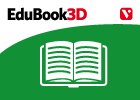
Vertebrates
EduBook Organización
- 1 lo usan
- 7498 visitas
What are vertebrates? Vertebrates are animals that have bones and a spinal column. They also have a head, torso and limbs. Groups of vertebrates We can classify vertebrates into five groups: Mammals…
Te estamos redirigiendo a la ficha del libro...













